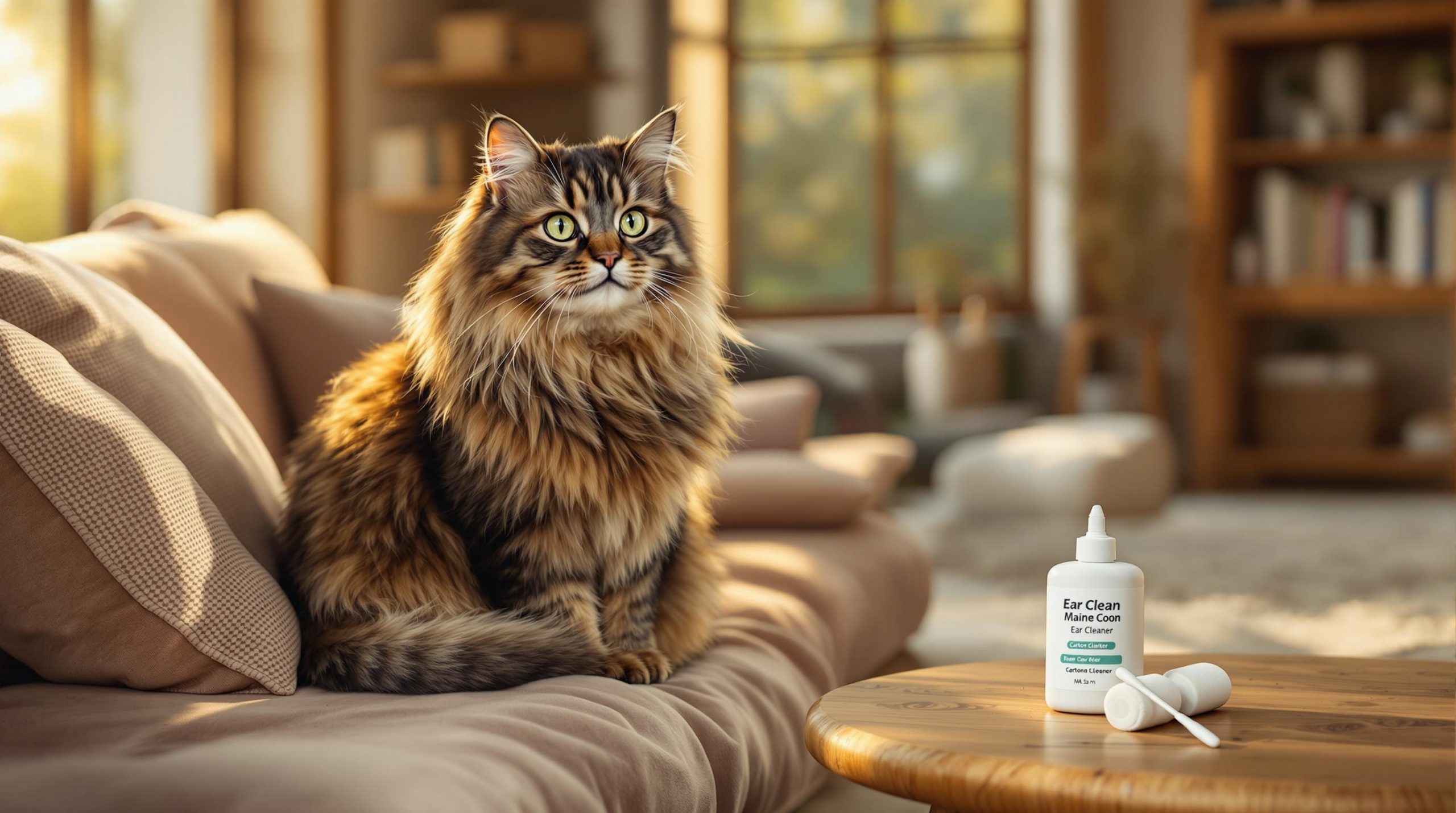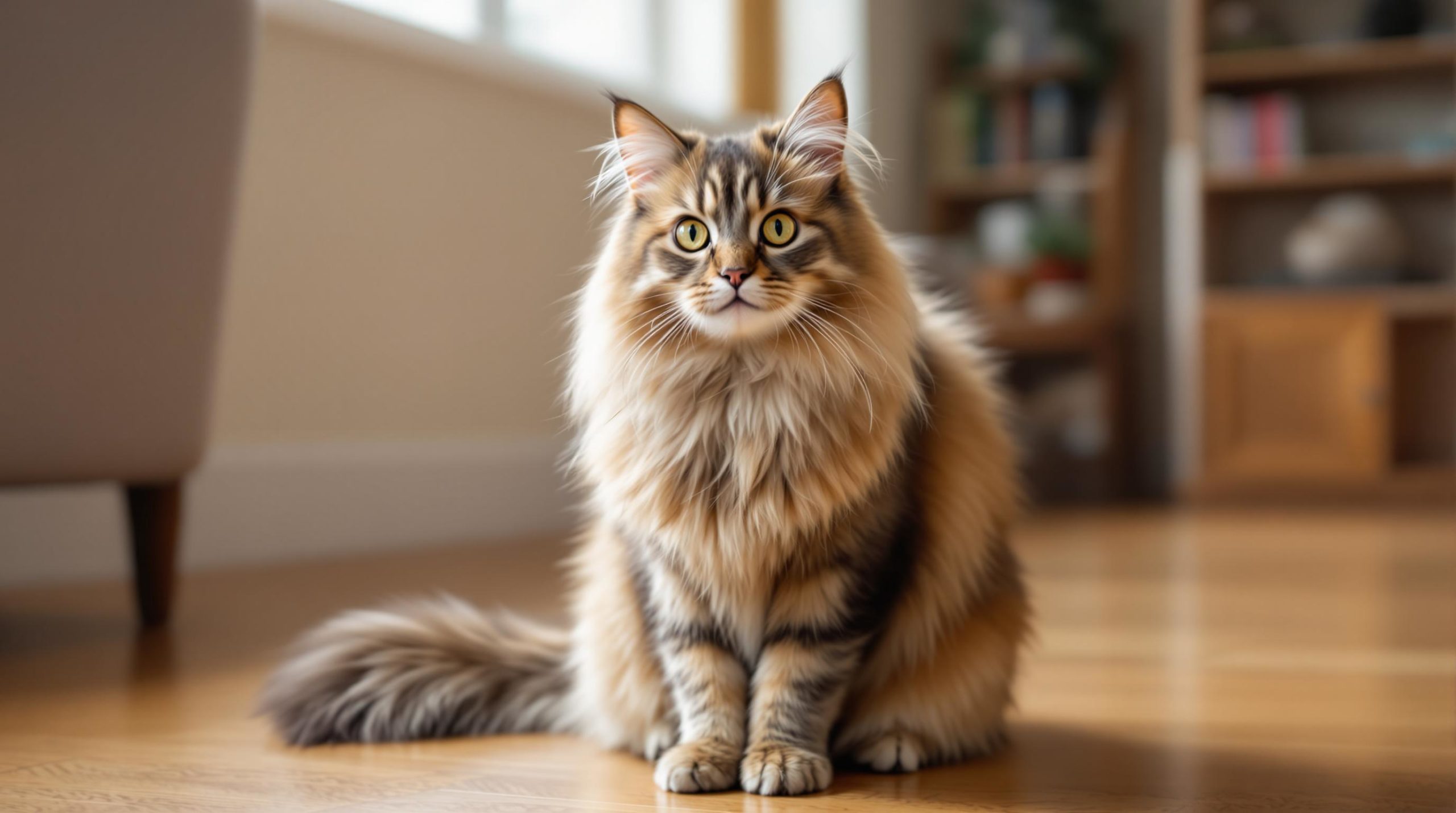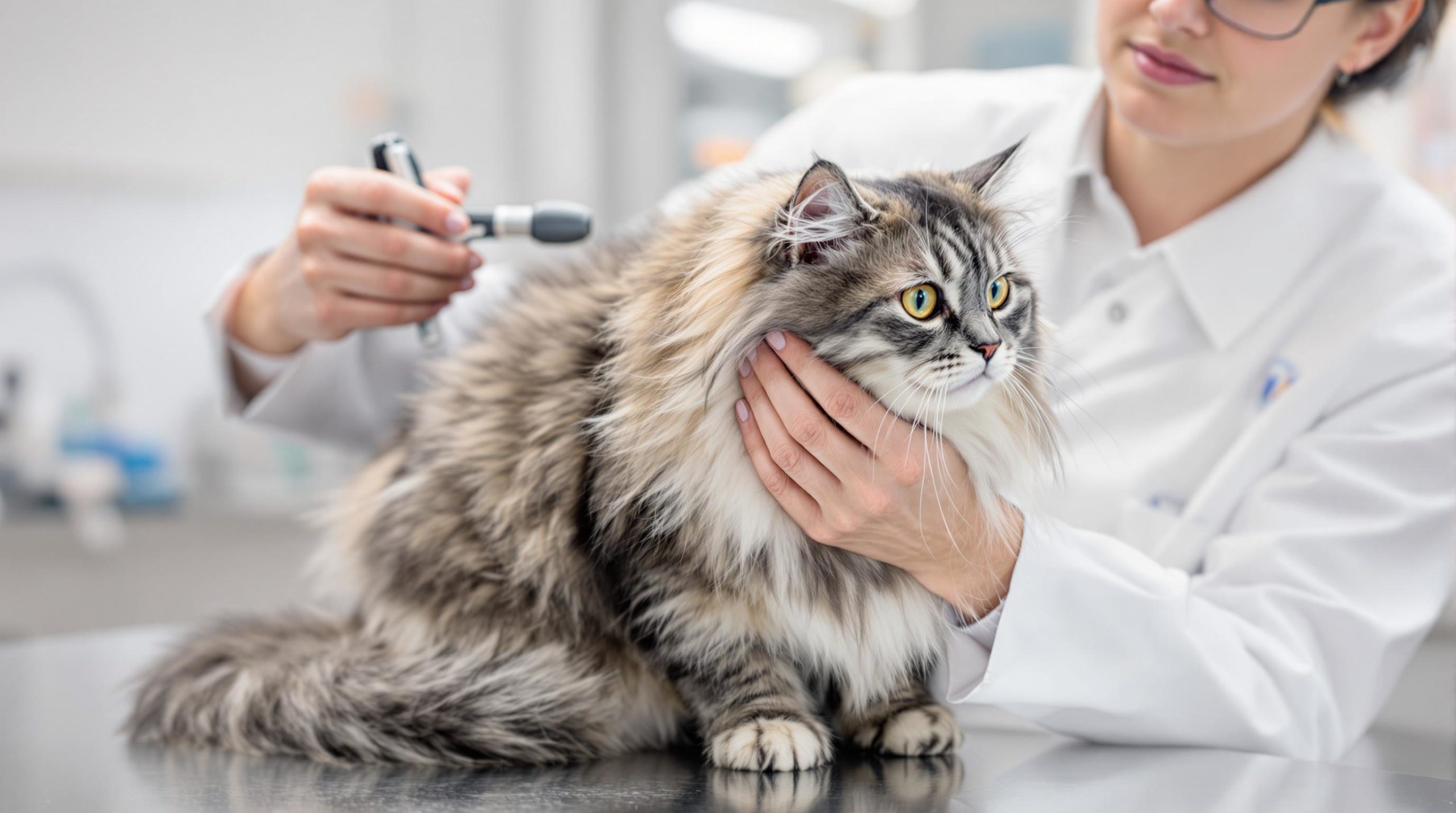steer clear of these expensive ear issues in Maine Coons!

Maine Coons are renowned for their majestic, tufted ears—a hallmark of their breed that draws admiration from cat lovers everywhere. However, these distinctive features, while stunning, come with their own set of challenges. The large size and deep canals of Maine Coon ears make them susceptible to a spectrum of ear problems that can cause discomfort, costly veterinary visits, and in extreme cases, long-term health complications. Recognizing and preventing these issues is key to maintaining your feline friend’s wellbeing and saving on potentially hefty medical expenses.
Understanding Why Maine Coon Ear Care Is Crucial for Cat Health
The anatomy of Maine Coon ears contributes directly to their ear health concerns. Their ears are not only larger than those of many other cat breeds but also richly tufted with fur that serves to keep dirt and debris out. However, this fur combined with deep ear canals can inadvertently create a sanctuary for wax buildup, bacteria, and parasites.
Lurking dangers inside those ears can turn from simple irritations into severe infections if unnoticed. Outdoor-loving Maine Coons are particularly at risk, as wooded and grassy environments frequently expose their ears to contaminants. Dense inner ear fur traps moisture after grooming or bathing, increasing the likelihood of fungal or bacterial growth.
To understand how best to protect your Maine Coon’s ears, it’s helpful to explore the common conditions they face, their causes, and preventative measures tailored to this unique breed’s lifestyle and physiology.

Top Factors Making Maine Coons Vulnerable to Ear Issues
- Large, Deep Ear Canals: These create an environment where wax and debris accumulate out of sight, making regular checks vital.
- Heavy Ear Fur: Dense tufts that, while protective, trap moisture and dirt easily.
- Outdoor Activity: Explorations in nature increase exposure to foreign bodies and infections.
- Allergic Reactions: Sensitive skin or allergies can cause inflammation, aggravating ear problems.
Regular ear checks and grooming are fundamental. Using pet grooming products designed specifically for cats can ease cleaning without causing irritation. Also, premium cat food supporting a strong immune system can indirectly help by reducing allergic flare-ups.
Table: Key Ear Problem Causes and Prevention Tips
| Ear Problem | Primary Cause | Prevention Strategies |
|---|---|---|
| Wax Buildup | Deep ear canals, poor cleaning | Regular cleaning with cat ear products |
| Ear Mites | Contact with infected animals | Isolate new pets, regular vet checks |
| Yeast Infection | Moisture, allergies | Keep ears dry, monitor allergies |
| Bacterial Infection | Trauma, untreated infections | Immediate treatment, prevent excessive cleaning |
| Foreign Bodies | Outdoor debris | Inspect ears after outdoor exposure |
Exploring ear care deeper can empower Maine Coon owners to prevent costly and painful ear conditions, underscoring the value of preventive veterinary services and insurance coverage tailored for cat health.
Spotting Common Ear Diseases: Signs Your Maine Coon Needs Veterinary Attention
Every cat owner has at some point witnessed their furry companion shaking their head or scratching their ears vigorously. While these can be innocent behaviors, persistent ear scratching and head shaking often signal underlying problems that deserve prompt attention.
Recognizing symptoms early can dramatically reduce treatment difficulty and expense. Below are detailed descriptions of common Maine Coon ear issues, alongside symptoms that should send you packing to your trusted veterinary services provider.
Identifying Ear Mites: The Tiny Trouble Makers
Otodectes cynotis, or ear mites, are microscopic parasites that feast on ear wax and oils. This is a highly contagious condition particularly seen in young cats or in homes with multiple pets.
- Symptoms: Intense scratching, head shaking, black crumbly discharge resembling coffee grounds, and crusty scabs around the ear rim.
- Example: A Maine Coon kitten might start scratching so much that the fur around its ears falls out, revealing irritated, red skin.
Early veterinary intervention typically involves antiparasitic ear drops. It’s important to treat all pets in the household simultaneously to prevent reinfestation.
Warning Signs of Yeast and Bacterial Infections
Yeast infections thrive in warm, moist ears and often stem from allergies or poor ventilation. Look for foul odor, yellow/brown wax, redness, and itching. Bacterial infections could follow untreated mite infestations or trauma, leading to swelling, painful pus, and even fever.
For instance, a Maine Coon with a bacterial ear infection may refuse play, hide, or show signs of lethargy due to pain. If you notice a foul smell emanating from the ear or see discharge, immediate veterinary care is warranted.
Spotting Less Common Yet Serious Ear Issues
- Aural Hematoma: Swollen, painful ear flap often caused by excessive shaking.
- Polyps/Growths: Unexplained discharges, hearing loss, or disorientation.
- Foreign Bodies: Sudden irritation or excessive pawing post outdoor activity.
Taking Maine Coons for regular check-ups can catch these conditions before they spiral into expensive surgeries or chronic problems. Many owners find that pet insurance helps mitigate the high cost of treatment, making proactive healthcare more accessible.
Costly Treatments and How to Minimize Expenses with Preventive Ear Care
Some owners may be unaware of just how expensive ear treatment in Maine Coons can become. Awareness of costs combined with effective prevention strategies offers a practical path to reducing financial burdens.

Table: Common Ear Issues Treatment Costs (USD/GBP)
| Ear Problem | Description | Estimated Cost Range |
|---|---|---|
| Ear Mites | Antiparasitic treatments to remove mites | $50–$150 / £40–£120 |
| Yeast Infection | Antifungal medication and allergy management | $100–$250 / £80–£200 |
| Bacterial Infection | Antibiotics and anti-inflammatories | $100–$300 / £80–£240 |
| Aural Hematoma | Surgical drainage or needle aspiration | $200–$500 / £160–£400 |
| Polyps or Tumors | Surgery and biopsy | $300–$2,000+ / £250–£1,600+ |
| Foreign Objects | Removal by vet and medication | $50–$150 / £40–£120 |
Incorporating regular ear cleaning into your pet grooming routine can dramatically lower the risk of many of these issues. Simple daily checks combined with occasional cleaning using natural pet remedies or specialized cat ear products can prevent wax buildup that breeds infection.
Tips to Keep Your Maine Coon’s Ears Healthy and Manageable
- Inspect ears weekly, especially after outdoor adventures.
- Use only veterinary-approved cleaning solutions and products.
- Address allergies with a vet-approved diet, which might include premium cat food to boost immunity.
- Schedule regular veterinary visits to catch subtle changes early.
- Consider pet insurance to offset unexpected medical costs.
By investing time in preventive ear care, Maine Coon owners not only safeguard their pet’s health but also avoid stressful and expensive veterinary interventions. Resources like Maine Coon ear maintenance guides provide valuable knowledge for cat lovers eager to excel in pet care.
Special Considerations: Breeding, Allergies, and Genetic Influences on Ear Health
Ear health in Maine Coons is influenced not only by external factors but also by genetics and breeding history. Experienced breeders understand how congenital defects or hereditary conditions, such as narrowed ear canals, can affect cat health and require special attention.
Proper screening before breeding can help reduce transmission of such risks. Likewise, recognizing and managing allergies—whether environmental or food-based—can prevent chronic inflammation that leads to infections.
Owners interested in adopting or breeding Maine Coons may find it useful to compare similar breeds to understand their relative risks. For example, resources like Ragamuffin vs Maine Coon and Nebelung vs Maine Coon highlight differences in breed health profiles, including ear vulnerability.
- Avoid breeding cats with recurrent ear problems or deformities.
- Develop a nutrition regimen with premium cat food to fortify the immune system.
- Use natural pet remedies to soothe allergic skin reactions safely.
- Ensure access to veterinary services for genetic testing when needed.
These proactive measures foster healthier litters and contribute positively to the broader Maine Coon population’s ear health.
Making Ear Health a Priority: Practical Advice for Maine Coon Owners
Incorporating ear care into your Maine Coon’s routine doesn’t need to be a dreaded chore. It can be a bonding experience that strengthens your relationship while promoting cat health. Simple habits using quality pet accessories, grooming tools, and treats create a positive environment for your cat to accept ear cleaning.
Additionally, consider the following practical steps in your care regimen:
- Consistency: Establish a schedule for ear inspection and cleaning, adapting frequency to your cat’s lifestyle and ear condition.
- Observation: Pay attention to behavior changes — head shaking, scratching, or irritability signal the need for closer inspection.
- Consultation: Don’t hesitate to seek veterinary advice at the first sign of ear discomfort. Early action is key.
- Education: Stay updated on Maine Coon health risks via trusted sites like mainecoonlife.com.
- Support: Use pet insurance plans that cover specialist treatments, allowing access to premium care without financial stress.
Combining these tips with expert advice and quality products ensures that your Maine Coon’s ear health remains robust year-round.
FAQ: Essential Answers on Maine Coon Ear Problems and Care
- Q: How often should I clean my Maine Coon’s ears?
A: Generally, inspect ears weekly and clean no more than once every few weeks unless advised otherwise by your vet. - Q: Are ear infections more common in Maine Coons than other breeds?
A: Their unique ear structure does predispose them to certain infections, making vigilance particularly important. - Q: Can diet influence ear health in Maine Coons?
A: Yes, a balanced diet with premium cat food can boost immune function and help reduce allergies contributing to ear problems. - Q: What products are safest for cleaning my cat’s ears?
A: Use veterinary-approved cat ear products specifically formulated to avoid irritation or damage. - Q: Is pet insurance worth it for dealing with ear problems?
A: Absolutely. Pet insurance can cover unexpected costs from infections, surgeries, or chronic ear conditions, offering peace of mind.